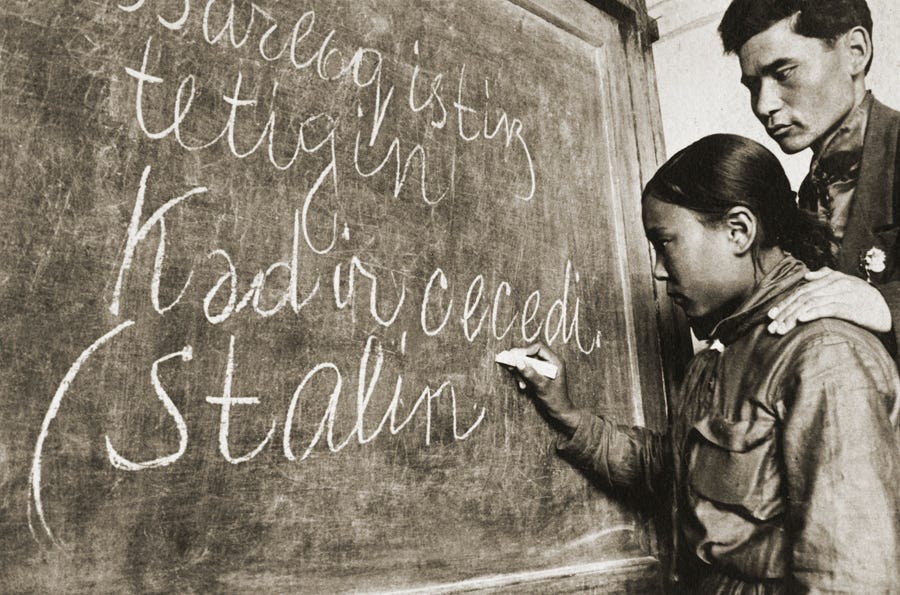The Modern Family
Also: Kids online, Anthony Burgess’s Napoleon novel, sign language poetry, a history of college sports, recovering Thomas Kyd, and more.

On his blog, Alan Jacobs revisits Christopher Lasch’s prescient 1977 book on the family— Haven in a Heartless World: The Family Besieged:
For Lasch, the Left and the Right alike consider the family largely sentimentally — the sentiments from the Right being positive, those from the Left negative — rather than analytically. And Haven in a Heartless World, while being in part a contribution to that analytical task, is more fundamentally a plea to Lasch’s fellow scholars to get to work to provide a deeper understanding of the extraordinarily complex situation of the modern family.
More:
One of the difficult questions Lasch raises is this: Why had parents, in the decades preceding the writing of the book, so often acquiesced in being sidelined? Why had they agreed to allow schools and institutions linked to schools — primarily clinical counseling of various kinds — usurp the role of formation that had once been essential to the family? Perhaps realizing that he had not clearly addressed this issue in the book proper, Lasch uses the Preface to the paperback edition to venture this idea: “The school, the helping professions, and the peer group have taken over most of the family’s functions, and many parents have cooperated with this invasion of the family in the hope of presenting themselves to their children strictly as older friends and companions” — the idea being, Lasch thinks, to eliminate conflict from the home. A fruitless notion, says Lasch, in his quasi-Freudian mode: “The attempt to get rid of conflict succeeds only in driving it underground.”
My purpose in this post (and subsequent ones, when I can get them written) is to indicate some of the ways in which Lasch’s half-century-old book illuminates current ideas about the family — for the trends he identified in 1978 have continued to this day. And much can learned by juxtaposing the family’s complicity in its own marginalization with another point, one raised by one of Lasch’s critics from the Left. That critic, Mark Poster, rejects Lasch’s argument for the necessity of the family in these terms: “The only way to [ensure] democracy for children is to provide them with a wide circle of adults to identify with, the ability to select their sources of identification, and a separation between authority figures and nurturant figures.” (Poster published a book in the same year, 1978, that the paperback edition of Haven appeared: it is called Critical Theory of the Family and its argument is pretty much what you would expect from that title.)
There’s much that could be said about each of Poster’s criteria for ensuring “democracy for children,” but I think the key one is this: “the ability to select their sources of identification.” I believe that for Poster — and this is true of many, if not most, leftist critics of the family — the ineradicable failing of the family is simply that it is given, not chosen. From this point of view, only what the individual chooses for him- or herself can be valid for that individual.
Jacobs goes on to write about his own experience of being chosen by another family rather than choosing a family for oneself.
In other news, “Nearly half of teens in the U.S. are online almost constantly,” Pew reports: “The Center reports that 46% of teens say they’re online ‘almost constantly,’ and 90% of teens it surveyed said they use the Google-owned video platform, while 73% of them said they use the platform daily.”
Keep reading with a 7-day free trial
Subscribe to Prufrock to keep reading this post and get 7 days of free access to the full post archives.



